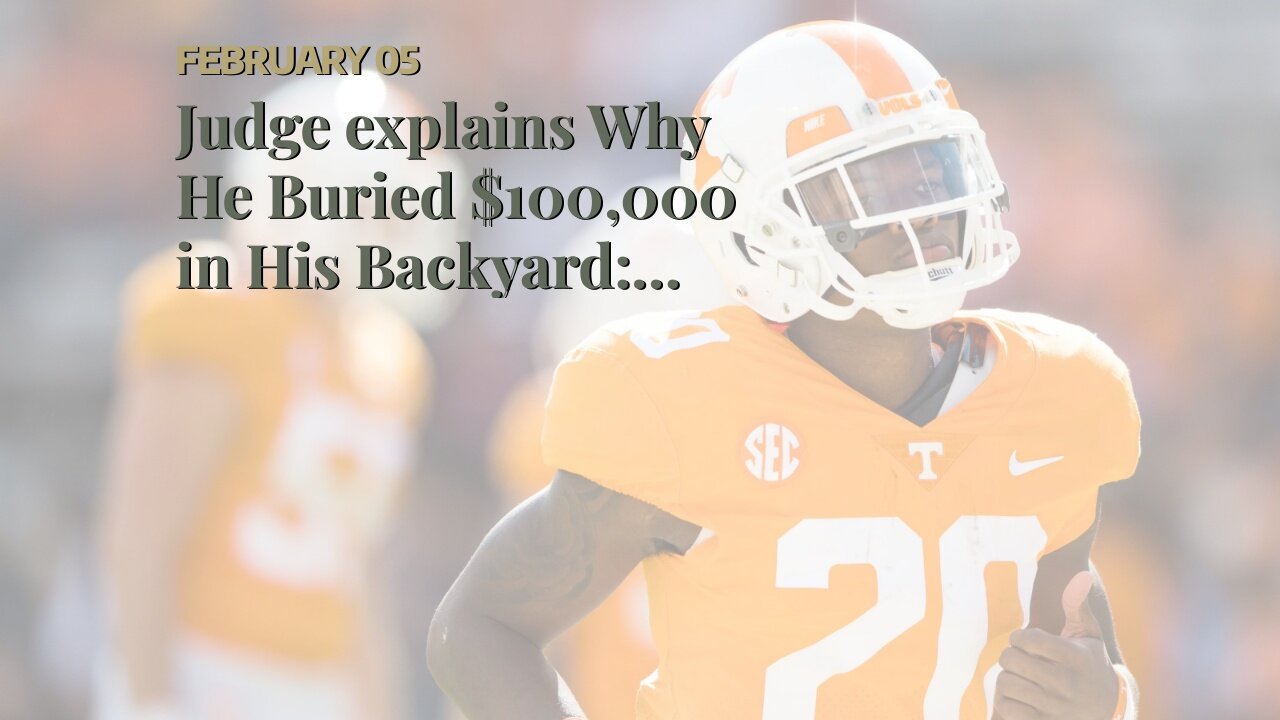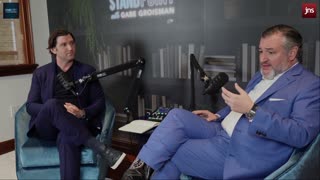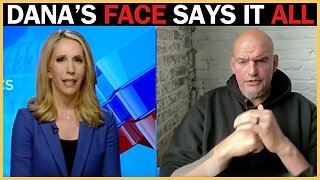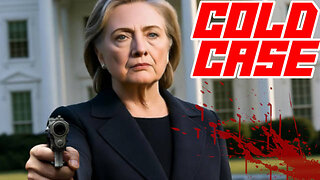Premium Only Content

Judge explains Why He Buried $100,000 in His Backyard: "I'm from Alabama,"
Judge explains Why He Buried $100,000 in His Backyard: "I'm from Alabama,"
“You’ve got an impressive slate of candidates,” Brian Manookian said on December 8 to a panel considering applications for a Tennessee Supreme Court seat. “Judge [Kelvin] Jones is not one of them.” Manookian gave a number of reasons for this, only one of which involved Jones’s admission that he buried $100,000 in his backyard to hide it from creditors.
Jones has been a judge in Davidson County, Tennessee, since 2014. His wife filed for divorce, and Jones was deposed in that case in July 2020. As you might expect, many of the questions in that deposition had to do with...
“You’ve got an impressive slate of candidates,” Brian Manookian said on December 8 to a panel considering applications for a Tennessee Supreme Court seat. “Judge [Kelvin] Jones is not one of them.” Manookian gave a number of reasons for this, only one of which involved Jones’s admission that he buried $100,000 in his backyard to hide it from creditors.
Jones has been a judge in Davidson County, Tennessee, since 2014. His wife filed for divorce, and Jones was deposed in that case in July 2020. As you might expect, many of the questions in that deposition had to do with financial matters, and many of Jones’s answers were interesting. Which is sometimes not a good thing for answers to be.
Several of these answers involved the buried cash. This came up in connection with documents showing “various large deposits” to a bank account, cash deposits totaling more than $190,000. The wife’s lawyer was interested in learning where that cash might have come from, and noted that in discovery responses Jones said only that it came from “cash on hand.” Noting “that doesn’t really tell us very much,” the lawyer inquired further.
At first Jones did not seem entirely sure, but then recalled he had kept about $100k in a CD in various banks at various times, which he used for expenses related to investment property. He would withdraw a few thousand at a time when necessary, he said. Why not just keep that in a regular account? Jones explained that “in business, you don’t want to have a lot of cash in accounts because the state at some point, if you’re going to owe a bill for your hotel, can come in and garnish your account. So I didn’t want to have that much cash in an account.”
I don’t claim to be a financial expert, but as I recall there are penalties for early withdrawals from a CD, and I’m not aware of a reason the state or another creditor couldn’t garnish or seize money in a CD. Also, even if this explanation made sense, Jones had testified that the value of the CD was only about half the amount of the mystery deposits. Might there be another place from which he had dug up this cash, the lawyer asked? Turns out there was: his backyard. I bought one of these Survivor tubs [Jones testified]. It has a top that screws on, … and it’s insulated, waterproof. It’s sealed. And that particular container, … had over a hundred thousand dollars in it. And it was buried in the ground right outside of our master bedroom…. The lawyer then followed up with some insightful questions about exactly how this worked: Q. So you just dig a big hole in the ground and you put it in? A. That’s correct. Q. So when you put the money in or whatever you have in there, you just put dirt over it? A. That’s correct. Q. How deep down do you put it? A. I probably had—it’s probably this tall [sic]. Q. Do you put grass on top of it or put it in a flower bed? I’m just curious. These are the kinds of questions you ask when the witness just told you something surprising and you’re still processing it. I mean, the basic process of burying something is pretty well documented at this point.
Sixty pages or so later, the cash-deposits-and-buried-treasure issue resurfaced. It appears that the judge took out a big loan so he could invest in a hotel project. The hotel opened in 2008—right before the recession—and it failed a year or two later. The bank foreclosed and the judge was left owing about $700,000. He testified that for years, he would try to settle the debt for some smaller amount, telling the bank he didn’t have any money. (According to one report, the bank was garnishing his judicial salary at the time.) Finally, they said they would take $150,000, the judge testified. A. And I said— Q. “Let me go dig up that cash”? A. I said, “Okay, that’s a deal.” As you can see, he did not say “let me go dig up that cash,” possibly...
-
 LIVE
LIVE
LFA TV
12 hours agoLIVE & BREAKING NEWS! | FRIDAY 11/14/25
2,857 watching -
 48:56
48:56
Standpoint with Gabe Groisman
2 hours agoTed Cruz Exposes Tucker Carlson's Anti-American Agenda In Bombshell Interview!
17.9K25 -
 13:57
13:57
stateofdaniel
1 day agoFetterman TORCHES the Cruel Left on CNN: “They Want Me to Die” — Dana Bash Freezes
8.44K7 -
 1:07:58
1:07:58
Crypto Power Hour
14 hours ago $10.25 earnedTether Co-Founder Brock Pierce & Martha Fain Wash DC Insider Boom!
53.2K7 -
 13:08
13:08
Cash Jordan
16 hours agoNYC Busses 'SELL OUT' in Minutes... as "Communist" Mayor WAGES WAR on AMERICA
19.4K53 -
 28:48
28:48
Jasmin Laine
19 hours agoCBC PANICS—Narrative COLLAPSES & They Blame TRUMP Live on TV
28.2K27 -
 19:17
19:17
T-SPLY
17 hours agoFederal Judge Prepares To Release Illegal Immigrants "Back Into Chicago!
19.5K33 -
 2:05:12
2:05:12
BEK TV
1 day agoTrent Loos in the Morning - 11/14/2025
22K2 -
 19:26
19:26
The Official Steve Harvey
16 hours ago $1.53 earnedGoing Viral Ain’t Luck — It’s Consistency
16.1K1 -
 11:04
11:04
TheSaltyCracker
18 hours agoEpstein Email Alleges Hillary Had Sexual Affair with ‘Suicided’ Vince Foster
91.4K197
